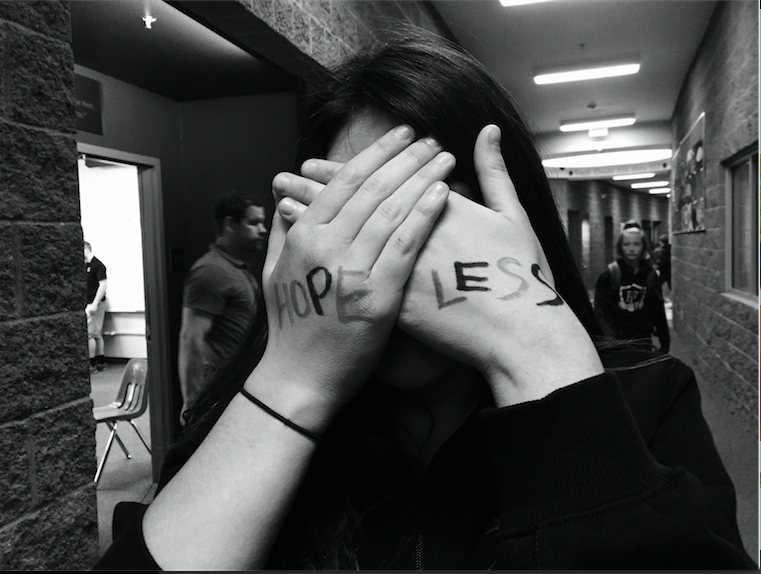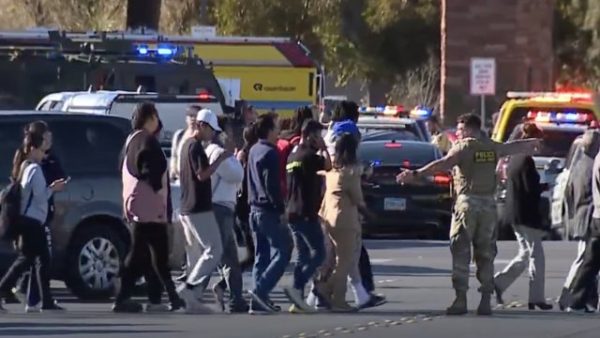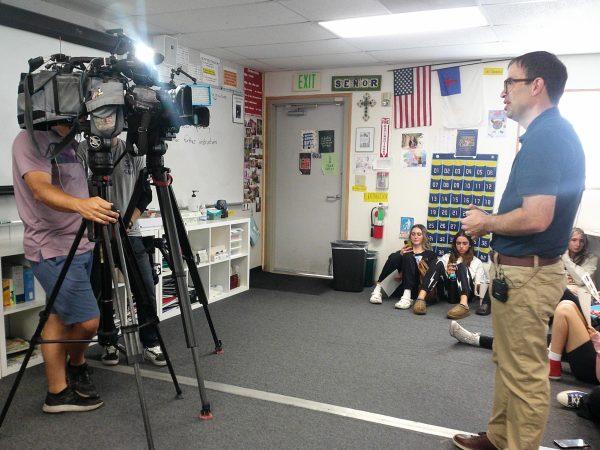Teen suicide awareness
Photo caption: Students with depression may keep their struggling to themselves, and not show it on the outside.
Suicide is the second leading cause of death for people ages 12 to 18. More young adults die from suicide than from cancer, heart disease, AIDS, birth defects, stroke, pneumonia, influenza, and chronic lung disease combined. Every day, there is an average of over 5,400 suicide attempts by young adults in 7-12 grade.
“Suicide can be a problem at any school. Having a community having to deal with a completed suicide is absolutely devastating, and even when the suicide doesn’t actually happen, having people in our population that we love and that we care about who are feeling that way is a problem,” said Faith Counselor, Mrs. Burns.
The problem of teen suicide affects many people, and it is important that adults and students are educated about the reality of teen suicide, the warning signs, and how it can be prevented. The more people that are aware of this issue the more people have a chance of preventing it and saving a life. “The people that look like they do not have any issues they are dealing with, sometimes have problems that torment them daily,” said Lauren Carter, an advocate against teen suicide. “Appearances on the outside are extremely deceiving. Many times I have heard people say, ‘There were no signs,’ or ‘He/She was happy yesterday.’ Things can change in a person’s mind in less than a second.”
Mrs. Burns encourages students to speak up. “I think that everybody gets uncomfortable. Nobody wants to come right out and say ‘Are you suicidal? Do you plan to hurt yourself?’ because it feels like we’re just being dramatic when we say it. I think that with things like suicide there’s honestly no such thing as dramatic. We have to ask each other hard questions to make sure that we’re okay… sometimes adult help is needed, and it’s always the right thing to do. It’s never a bad thing to let people know that we care.”
Teenagers experience feelings of stress, self-doubt, pressure to succeed, uncertainty, and other fears while growing up. For some, suicide may seem like the only solution to their problems and stress, however that is not the case. Depression and suicidal feelings are treatable and preventable mental disorders.
Parents, as well as students, should be aware of several important signs that their children or friends are suffering with; such as withdrawal from friends and family, loss of interest in regular activities, or violent actions. Teens planning to commit suicide may also complain about being a terrible person or being suddenly cheerful after a period of depression.
Joking about death has become increasingly common, and it is hard to tell if people are serious when they talk about it. “Unfortunately the whole ‘I just want to kill myself’ thing has become part of our vernacular today, which isn’t great, but I think anytime someone says that it needs to be talked about,” stressed Burns, “I think it’s just important, [if you’re struggling], to say something. Say something to a parent, to a teacher, to a friend. There’s no weakness in letting people know that you need help.”
If your friend mentions suicide or the thought of killing themselves, always take it seriously and tell an adult or find out more from the person directly. Reassure this person that many people care about them; that can be extremely helpful in persuading them not to hurt themselves. With support from family and appropriate treatment, teenagers who are suicidal can heal and return to a healthy path of life. “The most important thing students can do to help struggling friends is listen,” said Carter. “Never stop showing love to your friend, even if they stop showing love to you.”
“At Faith, we have a hotline and an anonymous email,” said Burns, “I know sometimes kids worry about coming in to talk about being worried about their friends, and that’s why we have that. So if anyone’s ever worried about a friend and they’re nervous about coming down, send it anonymously. We have no way of figuring out who it is, and then the friend still gets the help.” You can find the hotline at http://www.faithlutheranlv.org.
For more information on teen suicide, or to find ways you can help, visit http://www.thebrookiefoundation.org or ask Lauren Carter, the organizer of the foundation. “The Brookie Foundation is a non-profit organization for Suicide Awareness, inspired by a lovely 15-year-old named Brooke Fischer,” explained Carter. “Brooke took her life unexpectedly, which shook her family and many others to the core. This horrible and soul-crushing event made me realize the need for someone to take action and inform others about suicide, in an effort to reduce the frequency of teenage suicide.”
Madison Correia, sophomore, is on her 5th year at Faith. She loves to pitch and play second base for the Crusaders softball team. When she isn't on the...













